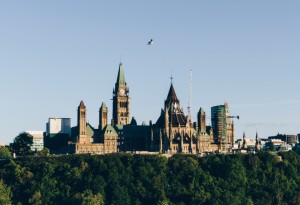
Photographer: Soroush Karimi
“The share of immigrants in Canada has reached its highest level in almost a century, according to 2016 census figures released Wednesday,” wrote Éric Grenier for CBC News on October 25, 2017.
Grenier continued, “The Statistics Canada data also shows the Indigenous population is growing at more than four times the rate of the non-Indigenous population, reaching nearly 1.7 million in 2016.
These are some of the findings of the latest data set from the 2016 census, focusing on the population related to immigration, ethnocultural diversity, housing and Indigenous people.
The numbers come just days before the annual immigration levels are set to be tabled in the House of Commons by the Liberal government. The levels were set at 300,000 per year in 2017.
The census figures show 21.9 per cent of Canadians report being or having been an immigrant or permanent resident, nearly matching the high of 22.3 per cent in 1921 and up from 19.8 per cent in 2006. The number was slightly higher than 21.9 per cent in 1931 too.”
Read the full article here.








